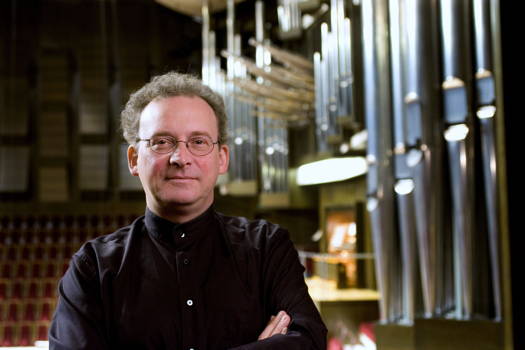 WORD SEARCH: Can you solve Allan Rae's classical music word search puzzles? We're currently publishing one per month.
WORD SEARCH: Can you solve Allan Rae's classical music word search puzzles? We're currently publishing one per month.
 CENTRAL ENGLAND: Mike Wheeler's concert reviews from Nottingham and Derbyshire feature high profile artists on the UK circuit - often quite early on their tours.
CENTRAL ENGLAND: Mike Wheeler's concert reviews from Nottingham and Derbyshire feature high profile artists on the UK circuit - often quite early on their tours.
- Ahmet Adnan Saygun
- Kenneth Montgomery
- Prague
- Charles Chaynes
- Åke Oskar Verner Hermanson
- Austral String Quartet
- Stockholm Philharmonic Orchestra
- Camargo Guarnieri
German Majesty
PATRICK MAXWELL listens to Bach and Bruckner
from Michael Schönheit, Andris Nelsons and
the Gewandhausorchester Leipzig
German orchestras are often some of the most popular to play at the Proms - with the Berlin Philharmonic treated as pop idols in the world of classical music - and their programmes are always pleasing as well. The Bavarian Radio Symphony Orchestra achieved a rapturous reception from the crowd when they performed twice late last month, and the Leipzig Gewandhaus who commanded the second half of this concert - BBC Proms, Royal Albert Hall, London UK, 23 August 2019 - kept up that reputation. The gargantuan Bruckner 8 awaited the Friday night crowd, and the mix of tantalising vitality, boisterous fanfares and a brilliant finale - it was for no small reason that Bruckner called it 'the most significant movement of my life'.
Before that, the orchestra's organist Michael Schönheit performed some of J S Bach's most renowned organ pieces, all composed during his long period as Cantor at the Thomaskirche in Leipzig. The magnificent Fantasia in G minor was carried off with visceral aplomb, although the quizzical tempo that Schönheit assumed was often overly brisk for the genius to be fully appreciated. The following transcription of the famous melody from Cantata No 147 is often played with a brisk tempo, and it was so here, with the lush tune not given full expression, and the Romantic organ and notorious acoustics in some ways not suited to this music. The Prelude in E flat major that followed showed this again, with such a strict tempo that any hint of expression at the end of phrases was ignored, with a wash of noise sweeping over the Royal Albert Hall. The tuneful 'Wachet auf' Prelude followed, a piece that seemed rather out of place in an August concert, given its symbolism of Christmas. The Prelude's accompanying Fugue followed, one of the most fulfilling of Bach's offerings for the instrument. Schönheit continued in his orotund fashion, having practised in the hall until 3am that morning. The programme offered music that showed off Bach at his genuistic best - but not the organist or indeed the organ itself.

Michael Schönheit in 2016
One could almost believe that Schönheit had been discreetly asked if he could get a move on through his pieces, given the length of the second half of the concert. The monumental piece is well-known to the orchestra - they are recording a cycle of Bruckner's symphonies - and the familiarity was evident in their flamboyant and dramatically assured performance. The 1890 revision was used, with Bruckner having chastised himself as an 'idiot' after the conductor Hermann Levi wrote that 'I haven't the courage to put it on'. The music, whilst often uplifting at certain points, is also full of foreboding moments of underlying darkness. Bruckner was constantly beset by the criticism from Eduard Hanslick and others, who formed the anti-Wagnerian school that took up one side in the War of the Romantics. In many ways, this later piece can be seen as a clear expression of his musical characteristics, and also a summation of his life's achievements.

Andris Nelsons. Photo © 2018 Marco Borggreve
The orchestra produced a moving performance that energetically gave of the best of German string playing, led superbly from the front by Sebastian Brueniger. The remarkable and sonorous third movement was carried off with grace and expressive beauty, before heading towards the finale that did not lose any of the earlier intensity. The timpani playing from Marek Stefula filled the whole hall in its orotund sounds, helping to mix the grandeur and deep-rooted troubled emotions that Bruckner portrays. Under the direction of Andris Nelsons, the orchestra played with panache and energy, which gave renewed vigour to the gigantic expression of one man's philosophy and turbulent feelings in a piece of such symphonic magnitude.
Copyright © 26 August 2019
Patrick Maxwell,
Buckinghamshire, UK



